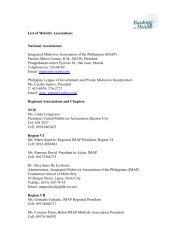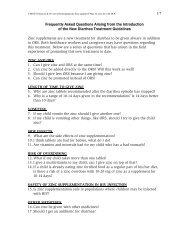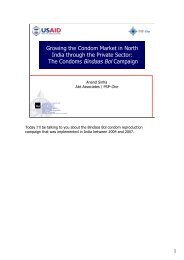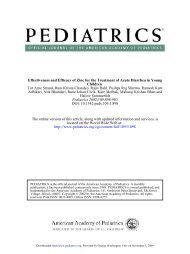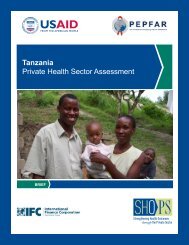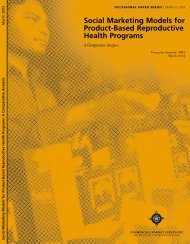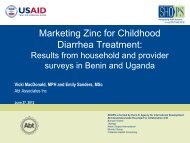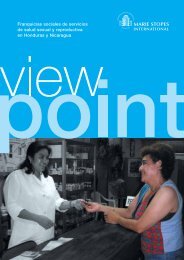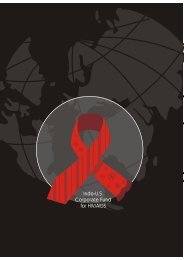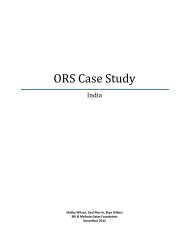Nigeria Private Sector Health Assessment - SHOPS project
Nigeria Private Sector Health Assessment - SHOPS project
Nigeria Private Sector Health Assessment - SHOPS project
You also want an ePaper? Increase the reach of your titles
YUMPU automatically turns print PDFs into web optimized ePapers that Google loves.
• understanding the NHIS system and benefits package<br />
• comprehending the NHIS accreditation requirements and the operational and facility changes<br />
needed to meet them<br />
• learning about NHIS reporting requirements and the systems necessary to meet them<br />
• understanding the principles of capitation and determining its impact on facility finances<br />
• attracting NHIS enrollees, including communicating with NHIS beneficiaries about their benefits<br />
packages<br />
• changing clinical practices in a managed-care environment<br />
• managing the NHIS drug benefit<br />
This work would be accomplished by formal training sessions and facility-specific consulting, and it<br />
probably would include a hotline for facilities to inquire about NHIS problems.<br />
The success of this intervention could be measured by looking at the increase in the number of CHAN<br />
facilities that are accredited in the NHIS and the number of NHIS beneficiaries enrolled with these<br />
facilities.<br />
2a. Conduct advocacy for greater coverage of family planning services within NHIS<br />
Some of the work involved in creating cost-tracking systems in recommendation 1 could inform this<br />
advocacy work, as it would permit more accurate actuarial estimates in determining family planning<br />
benefits and impact on premiums and the capitation payment.<br />
From a policy point of view, increased coverage might be easiest to achieve by passing through<br />
government family planning commodities at the current user fee and having the provider give to the<br />
patient at this fee. The government’s supply may be unreliable, however, which would tend to undercut<br />
the private and social market for family planning. An alternative option would be to add the products<br />
(except perhaps condoms) to the primary care drug list, set a price at the wholesale generic level, and<br />
then require the primary care provider to offer all methods, but permit him or her to charge the 10<br />
percent copayment.<br />
From a primary care provider’s point of view, a better alternative might be for SFH to provide family<br />
planning supplies and then set authorized copayments to be equal to the SFH wholesale charge. That<br />
way the provider would not be out any cash when supplying the method. This approach likely would<br />
require donor assistance in modeling the cost impact in the typical practice (particularly that of a<br />
midwife) serving a large number of women of reproductive age.<br />
2b. Conduct advocacy for coverage of HIV services within NHIS<br />
The number of centers that are trained and qualified to provide highly active antiretroviral therapy<br />
(HAART) is increasing. Currently 60,000 <strong>Nigeria</strong>ns receive antiretroviral drugs (ARVs) in governmentsupported<br />
programs. 1 Given HIV-infection levels, the Ministry of <strong>Health</strong> <strong>project</strong>s the need to have 1.2<br />
million <strong>Nigeria</strong>ns on ARVs by 2009. Thus ARV management must be pushed outward and downward to<br />
additional providers. With effective treatment AIDS will become a common chronic disease in the NHIS<br />
1<br />
In the early stages of the government program, an additional 10,000 <strong>Nigeria</strong>ns were thought to be receiving ARVs in the private sector.<br />
26



